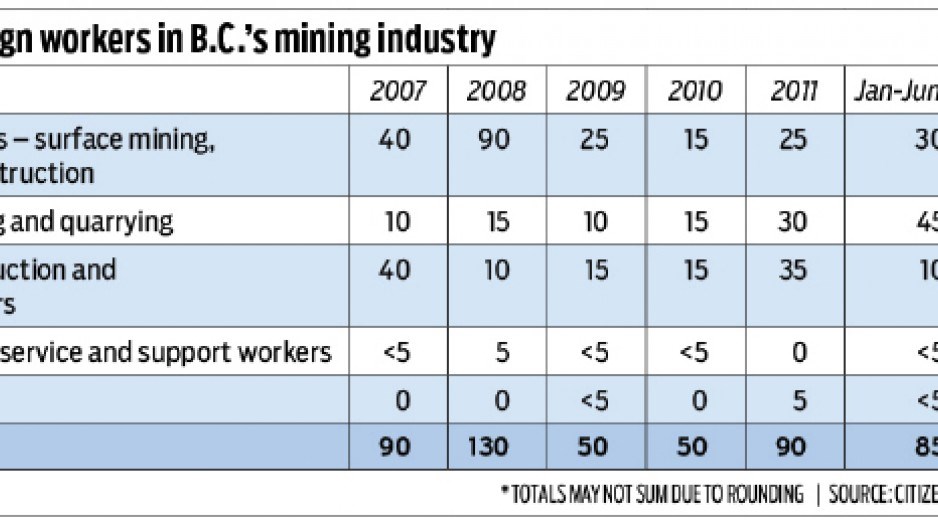Amidst a growing B.C. union outcry over the use of Chinese temporary foreign workers (TFWs) at northern B.C. underground coal mines, B.C.’s mining industry is insisting that it needs the program to maintain its labour pool.
“If we were able to enlist all of the available people that were either trained or qualified that are either British Columbians or Canadians to fill mining vacancies, we would still have gaps,” said David Bazowski, chairman of the BC Mining HR Task Force.
The task force recently released a report projecting that B.C.’s mining industry faces the prospect of about 3,000 jobs going unfilled over the next decade.
The project under fire is the Murray River coal mine. Vancouver-based HD Miningrecently received approval to bring 200 Chinese TFWs to work there.
Last week, BC Federation of Labour president Jim Sinclaircalled for the suspension of those permits, amidst allegations that the workers were told they had to pay fees to apply for mining positions in the province.
Jobs Minister Pat Bellhas said publicly that the province will investigate the allegations.
Bazowski said British Columbians and Canadians should get priority at filling B.C. jobs. But he added that the TFW program is useful as long as it’s not abused.
“Where it does become necessary to bring in TFWs, [it needs to] be done in a way that ensures they are treated the same as their Canadian counterparts, that there is strong provincial and federal policy and regulation to ensure that happens and that there is rigour within the industry itself to ensure employers demonstrate that responsibility,” he said.
Michelle Mondeville, communications director for the Coal Association of Canada, said Canada is particularly short of underground mining skills.
“Canada used to have a fair amount of underground mines, but we don’t have many anymore. The people who do have those skills tend to be much older and there aren’t enough of them.”
Mondeville added that, given the province’s potential for underground mines, the TFW program is one of many strategies B.C. needs to fill labour gaps. She said the loss of that program could hit the industry hard.
“If you don’t have enough skilled labour, the project will stop or stall and you’re going to have a significant economic impact. So the mine needs a steady supply of labour and if they’re gearing up to introduce more underground mines, they’re going to have to staff them anyway they can.”




